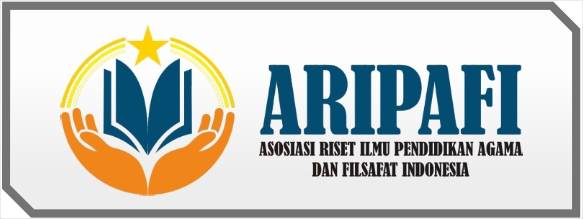Peran Guru PAI dalam Mengatasi Problematika Pembelajaran di SMPN 3 Kalikajar Wonosobo
DOI:
https://doi.org/10.61132/reflection.v2i3.1120Keywords:
Role, Problems, Learning, Islamic Religious EducationAbstract
Education serves as a cornerstone in the learning process of students to enhance intelligence, develop skills, and foster moral character in advancing the nation. Islamic Religious Education and Character (Pendidikan Agama Islam dan Budi Pekerti) plays a vital role in helping students shape noble character, cultivate responsibility, and behave in accordance with the values of Islamic faith. In this modern era, the teaching of Islamic Religious Education and Character faces various challenges that hinder the learning process. Therefore, teachers have an essential role in guiding, educating, and directing students to develop their cognitive, affective, and psychomotor abilities to achieve effective learning outcomes. This study aims to: (1) identify the problems faced in the teaching of Islamic Religious Education and Character; (2) explore the efforts or roles of Islamic Religious Education teachers in addressing these problems; and (3) examine the supporting and inhibiting factors that affect the role of teachers in overcoming the challenges of teaching Islamic Religious Education and Character at SMPN 3 Kalikajar. This research employed a qualitative method with a field research approach. Data were collected through interviews, observation, and documentation techniques. The findings of the study indicate that: (1) the problems in the teaching of Islamic Religious Education and Character at SMPN 3 Kalikajar include students’ low ability in reading the Qur'an, moral degradation, limited learning time allocation, and the diversity of students’ religious understandings; (2) the efforts or roles of Islamic Religious Education teachers in overcoming these problems include the use of active, innovative, and creative learning strategies, utilization of technology and digitalization, preparation of systematic teaching modules, implementation of learning evaluations, collaboration with fellow teachers to solve unresolved issues, involvement of parents, and reinforcement of religious values through Madrasah Diniyah programs; (3) the supporting factors include the shared Islamic background among students and the availability of adequate facilities and infrastructure, while the inhibiting factors are generally insignificant and mainly technical or situational in nature.
References
Abdillah. (2021). Problematika pembelajaran Pendidikan Agama Islam di sekolah terpencil. Institut Agama Islam Negeri Palopo.
Anwar, M. (2020). Peran guru dalam pembentukan karakter religius siswa sekolah menengah. Jurnal Pendidikan Islam, 6(3), 110–123.
Arikunto, S. (2010). Prosedur penelitian suatu pendekatan praktik. Jakarta: Rineka Cipta.
Daulay, H. P. (2016). Pemberdayaan pendidikan agama Islam di sekolah. Jakarta: Kencana.
Hasanah, L. (2021). Peran guru PAI dalam meningkatkan karakter siswa di era digital. Jurnal Pendidikan Islam, 9(2), 145–156.
Irawati, D., Saefulloh Anwar, A., Ruswandi, U., & Arifin, B. S. (2022). Problematika pembelajaran Pendidikan Agama Islam pada sekolah dasar dan menengah. Jurnal Ilmiah Ilmu Pendidikan, 5(12).
Muhaimin. (2003). Paradigma pendidikan Islam: Upaya mengefektifkan pendidikan agama Islam di sekolah. Bandung: Remaja Rosda Karya.
Ningsih, S. R. (2022). Evaluasi pembelajaran berbasis karakter dalam PAI. Jurnal Edukasi Islam, 8(1), 33–44.
Nurhalimah, F. (2023). Teknologi digital dalam pengajaran Pendidikan Agama Islam. Jurnal Pendidikan Digital Islam, 1(1), 55–66.
Rahmat Hidayat. (2018). Pendidikan dan pembentukan karakter bangsa. Jurnal Ilmu Pendidikan, 3(1), 10–20.
Sardiman. (2011). Interaksi dan motivasi belajar mengajar. Jakarta: RajaGrafindo Persada.
Sutrisno, A. (2019). Strategi guru dalam mengatasi degradasi moral peserta didik. Tadbir: Jurnal Manajemen Pendidikan Islam, 4(2), 72–83.
Syafi’i, M. A. (2020). Implementasi strategi pembelajaran aktif dalam PAI. Tadrib: Jurnal Pendidikan Agama Islam, 5(1), 22–33.
Tilaar, H. A. R. (2009). Standarisasi pendidikan nasional. Jakarta: Rineka Cipta.
Yunus, M. (2021). Tantangan guru PAI dalam pembelajaran daring pasca-pandemi. Jurnal Tarbawi, 7(2), 87–98.
Zuhairini, dkk. (2004). Pendidikan Islam. Surabaya: Bina Ilmu.













